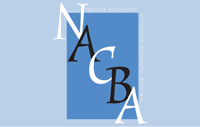People dealing with estate administration or the probate process often want to know how to distinguish between revocable and irrevocable trusts. The difference lies in whether the settlor (the person who forms it) has the power to end the trust. To better understand what makes a revocable trust different from an irrevocable trust, it’s a good idea to learn some basic trust terminology. Moreover, for families struggling with probating an estate or wondering how to administer a trust, it’s a good idea to contact a local wills and trusts lawyer for advice.
Trust Basics: What Is a Trust?
A trust is a method of holding property or assets. It’s different than direct ownership when a person or a company owns a piece of property or an asset. Instead, a settlor gives a trustee permission to hold the property in trust for a beneficiary. The settlor must transfer ownership of the property to the trustee, who is only permitted to invest or sell the property if it’s in the beneficiary’s best interests. A trust should be documented in writing, preferably by a wills and trusts attorney, and property must be properly transferred to the trustee in order for it to be held in trust.
Why would you want to form a trust if you could have direct ownership of your property or assets instead? People use trusts for a variety of reasons, such as:
- To help ensure that beneficiaries (such as relatives) receive an inheritance
- To ease the probate process for heirs and estate executors
- As a method of protecting property from potential creditors
- For tax reasons
- To make a charitable gift
- To protect relatives who are vulnerable, broke, or have special needs
Revocable Versus Irrevocable Trusts
Depending on the settlors’ goals and needs, they can form several different types of trusts. One important distinction is whether a trust is revocable or irrevocable. To determine which type it is, an estate administration lawyer reads the trust document to see if it gives the settlor the right to end the trust. If the settlor can revoke (end) the trust and regain the trust assets, it’s likely a revocable trust. If the settlor cannot revoke the trust, it’s likely irrevocable. For an irrevocable trust, the settlor cannot regain the trust assets once their ownership has been properly transferred to the trustee.
Why Choose a Revocable Trust?
Many settlors appreciate the flexibility of a revocable trust. They can add and remove assets from the trust as they please during their lifetimes. The trust assets are not set in stone. However, because the settlor can move assets around, creditors may be able to access the assets even if they are placed in the revocable trust.
Estate planning lawyers often create revocable living trusts for clients. These revocable trusts convert to irrevocable trusts once the settlor passes away. You may have heard of a pour-over will as well. Usually, a pour-over will provides that once the settlor passes away, all remaining assets still owned by the settlor “pour over” straight into a trust, which becomes irrevocable upon death. Revocable living trusts and pour-over wills can ease the probate and estate administration process.
Why Choose Irrevocable Trusts?
Irrevocable trusts provide less flexibility than revocable trusts, but they provide more protection for the assets. Because the settlor of an irrevocable trust cannot access the assets once transferred to the trustee, they receive some degree of protection from creditors. There may also be tax consequences because the settlor no longer legally owns the assets. As mentioned above, a revocable trust that converts to an irrevocable trust upon death is also a useful tool. It can allow the settlor more control over how assets are managed and distributed to beneficiaries than a will would permit.
It’s very important to distinguish between these two types of trusts for estate administration purposes. Grieving families trying to deal with probate often struggle with trust administration and related issues. If you have questions about a trust, seeking legal advice from an experienced local wills and trusts lawyer is a good idea. You can get your questions answered and learn more about the steps you must take to handle a revocable or irrevocable trust.
Let Us Help with Your Questions About Revocable and Irrevocable Trusts
Are you looking for a dependable, experienced lawyer who can assist with a trust or probate issue? Daigle Law Office’s attorneys can provide you with experienced Massachusetts estate administration help. It’s not easy to deal with estate administration, probate, and other estate issues, especially if you have lost a loved one or are coping with family disputes. We help clients dealing with tough situations who need solid, reliable legal advice. To schedule a consultation, call 508-771-7444 or use our convenient Contact Form.







